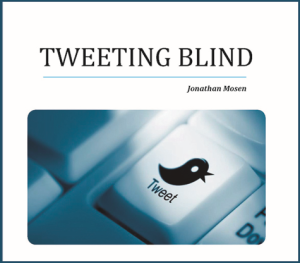I’m a history, news, and politics buff. Radio is also an enduring passion of mine. It’s been a long time now since I worked full time in commercial radio in New Zealand, but thanks to the Internet, I keep my hand in. With a team of over 40 volunteers, I run Mushroom FM, an Internet radio service staffed predominantly by blind broadcasters.
Mushroom FM has a sister station, Mushroom Escape, which plays a wide variety of radio drama and comedy. Sometimes, we deviate from that mission a little to commemorate special events. This Friday, we’ll be playing radio coverage of the Kennedy assassination from a range of sources, complete with all the jingles and commercials of the day.
In putting this special day of programming together, I’ve immersed myself in many hours of radio and TV coverage from that day, so I can select the best material in terms of both content and audio quality. It occurs to me that in addition to being a profoundly tragic day that altered the course of history, it was also the day breaking news came of age. Television networks went into a continuous news format for a prolonged period for the first time. Radio, with its ability to get correspondents on the air from a range of places more easily than television, held its own.
In sifting through all this material, I began reflecting on just how differently we consume breaking news stories now. Of course we have continuous news channels, and correspondents are easier than ever to put to air, but radio and TV are no longer the first place I turn to for breaking news. When I receive a push notification on my iPhone from one of my many breaking news apps, the first thing I do is turn to Twitter. With Twitter, anyone with a mobile device at the scene of an unfolding news event is a global journalist. It has democratized the news reporting process. Both trained journalists, and people who just happen to be bystanders when history unfolded, can record their experience in 140-character chunks for near immediate world-wide publication.
Mindful that absolutely anyone can be a global publisher thanks to Twitter, a bit of intelligence and healthy skepticism on the part of the reader goes a long way. Sometimes misinformation is spread, and for a while taken as fact. This can happen due to genuine confusion and misunderstanding, and in some cases because people are being mischievous. But reading first-hand accounts of unfolding events is often a more informative way of getting news than the constant repetition of talking heads trying to fill air-time with the same limited material over and over.
 Reading tweets about major events as they develop is just one reason why I find Twitter such a useful communication tool, and just one of the reasons why I hope my new book, “Tweeting Blind”, will encourage more blind people to become a part of Twitter. Twitter is fundamentally a text-based medium, making it ideal for those of us who use screen readers.
Reading tweets about major events as they develop is just one reason why I find Twitter such a useful communication tool, and just one of the reasons why I hope my new book, “Tweeting Blind”, will encourage more blind people to become a part of Twitter. Twitter is fundamentally a text-based medium, making it ideal for those of us who use screen readers.
How different it would have been, had the thousands of people who lined the streets of Dallas been able to tweet, fifty years ago.
Jonathan Mosen is a highly experienced producer and consumer of assistive technology and a skilled communicator through broadcasting, other audio and print.
